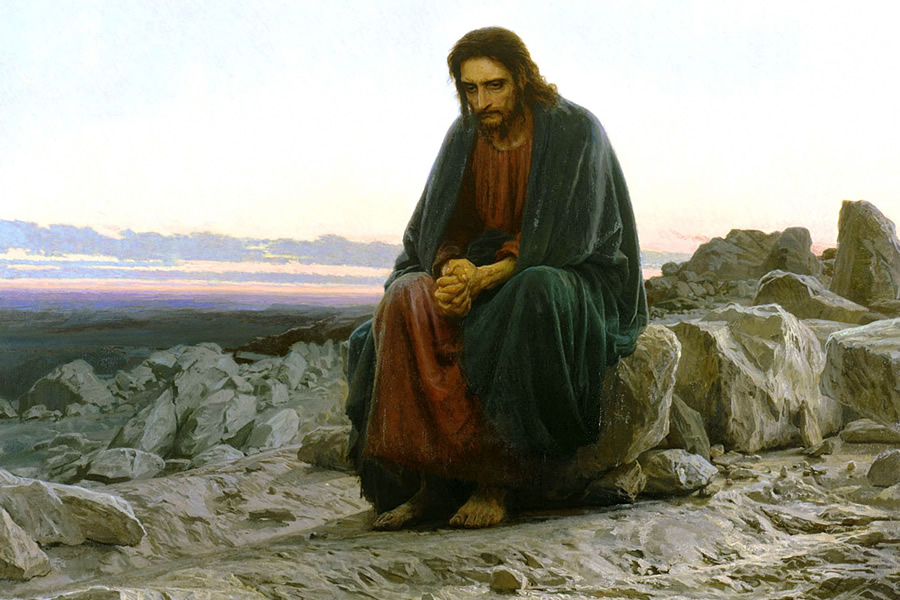
Forty Days = Your Entire Life
02-26-2023Weekly ReflectionAt that time, Jesus was led by the Spirit into the desert to be tempted by the devil. He fasted for forty days and forty nights, and afterwards he was hungry. Matthew 4:1–2
“Forty” is a significant number. In Scripture, it is used more than 145 different times. For example, the rain during the Great Flood lasted forty days and forty nights. Each time Moses went up Mount Sinai, he remained there for forty days and nights. The Israelites wandered in the desert for forty years. After His resurrection, Jesus appeared to His disciples for forty days before ascending into Heaven.
READ MORE
Love of Neighbor
02-19-2023Weekly ReflectionThe last two antitheses offered in the Sermon on the Mount deal with love of enemies. We should not look at “an eye for an eye” as an inordinately strict punishment. It is actually meant to limit acts of revenge by making sure the punishment is not excessive but fits the crime. However, Jesus asks His followers to take a different approach by resisting retaliation altogether. The response to a stronger person who slaps us on the cheek, takes us to court, or demands a service of us is not to resist. Similarly, for a weaker person, such as a beggar or borrower, we are to give him or her what he or she asks for. Those who are called to the Kingdom of Heaven are to go beyond the way the world usually works and serve God’s Kingdom here on earth.
READ MORE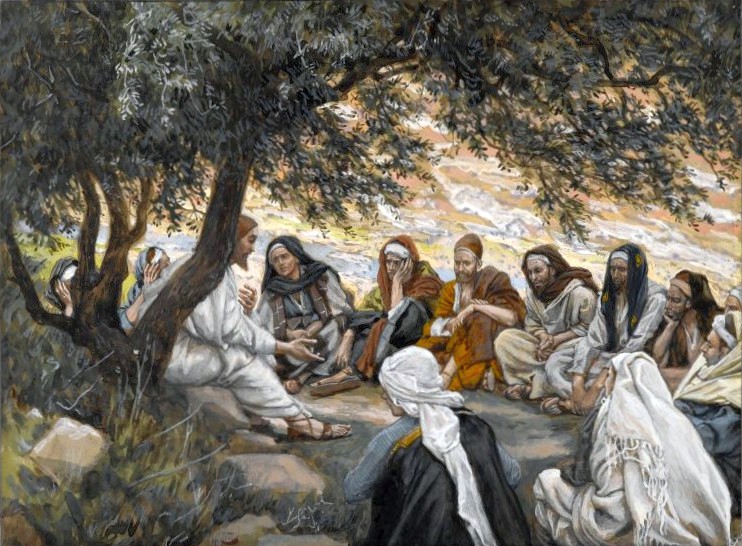
The Fullness of Righteousness
02-12-2023Weekly ReflectionJesus said to his disciples: “I tell you, unless your righteousness surpasses that of the scribes and Pharisees, you will not enter the kingdom of heaven.” Matthew 5:20–22
The scribes and Pharisees were masters of the Old Law. Now that the Messiah had arrived, they were unwilling to go deeper and move beyond the Old Testament teachings that they often misrepresented. They preferred a black-and-white approach to morality that had been with them for centuries and did not want to change when presented with Jesus’ new and higher calling.
READ MORE
In The Spotlight
02-05-2023Weekly ReflectionOur society loves celebrity. We love it so much that we’ve created a whole social class of them, people who are celebrated: celebrities. The place we often find them is “in the spotlight.” But in one of His usual twists on our usual assumptions about what is right and good, Jesus today informs us that we shouldn’t be in the spotlight, we should be the spotlight.
READ MORE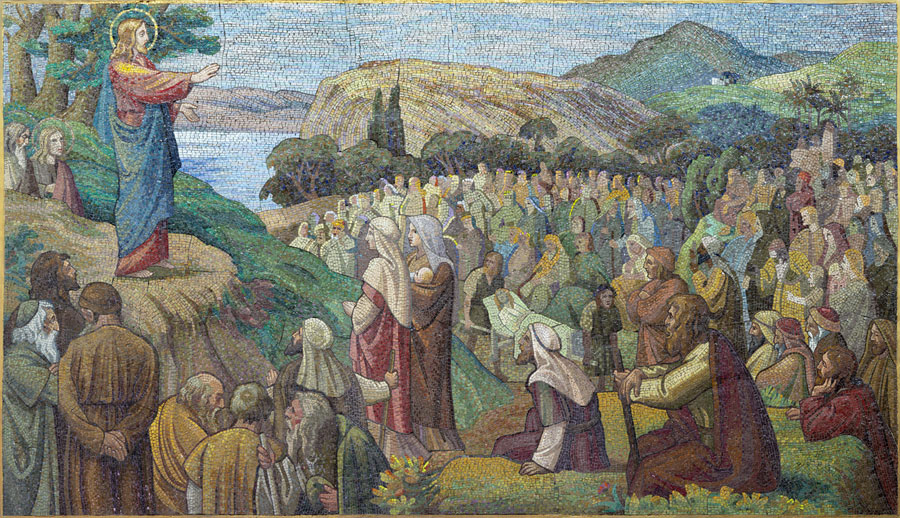
Rejoice and Be Glad
01-29-2023Weekly ReflectionToday’s Gospel reading is the beginning of Jesus’ Sermon on the Mount, which is found in Matthew’s Gospel. The form of the Beatitudes found here is not unique to Jesus. Beatitudes are found in the Old Testament, in the psalms, and in wisdom literature, for example. They are a way to teach about who will find favor with God.
We quickly note in this reading that the people whom Jesus calls “blessed” and “happy” are not people we think of as blessed or happy . . . the poor in spirit, the meek, the persecuted. This Gospel is one of reversals. Jesus’ blueprint for happiness reflects little of what the world might call happiness.
READ MORE
God’s Word as Life-Giving and Life-Changing
01-18-2023Weekly ReflectionIn a family, communication is essential for unity. But when someone joins a family, whether it be an infant or an in-law, it can be bewildering; so much family communication is based on a common understanding that the newcomer lacks. Fortunately, in the family of God, we are not left to bumble about unaided.
READ MORE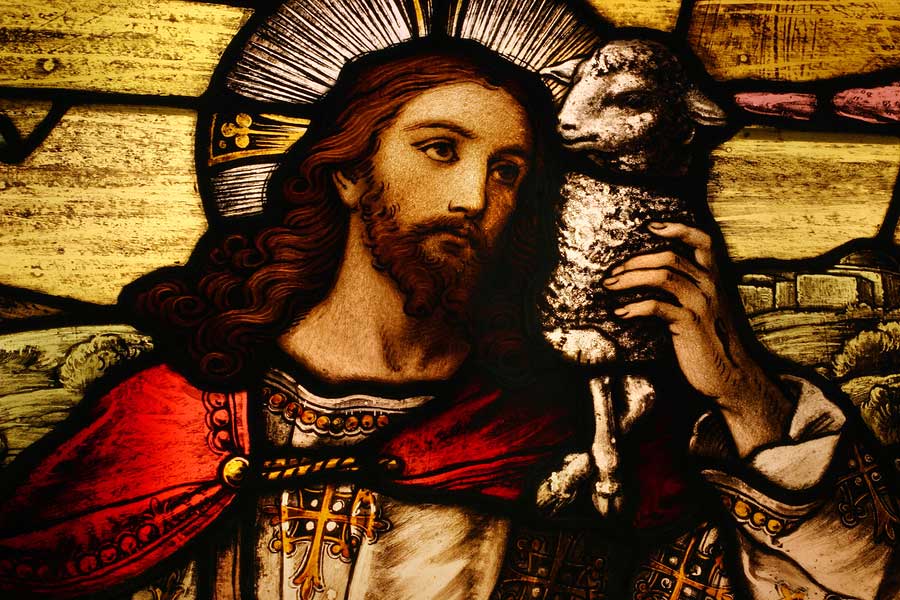
We Are Called To Make Jesus Known To All The World
01-15-2023Weekly ReflectionThis Sunday we break from our reading of Matthew’s Gospel (the primary Gospel for our current liturgical cycle, Cycle A) to read from John’s Gospel. We heard Matthew’s account of Jesus’ baptism last Sunday, on the feast of the Baptism of the Lord. Today, we hear John the Baptist’s testimony about Jesus as found in John’s Gospel. John’s Gospel differs from the other Gospels because John does not describe Jesus’ baptism by John the Baptist. Instead, John the Baptist announces that he knows that Jesus is the Son of God.
In today’s reading, John the Baptist sees Jesus approaching and cries out, giving witness about who Jesus is. In John’s testimony he says that he saw the Spirit descend upon Jesus. By this sign, John the Baptist knew that Jesus was the one who is to come after him.
READ MORE
The Magi Represent Our Search for Jesus
01-08-2023Weekly ReflectionThe visit of the Magi occurs directly before the story of the Holy Family’s flight into Egypt. Matthew’s Gospel tells a version of Jesus’ birth that is different than the one in Luke. Of the actual birth of Jesus, Matthew tells us little more than, “When Jesus was born in Bethlehem of Judea, in the days of King Herod . . . ” The story of the census is found only in Luke’s Gospel, but we hear about the visit of the Magi only in Matthew’s Gospel.
We know little about the Magi. They come from the East and journey to Bethlehem, following an astrological sign, so we believe them to be astrologers. We assume that there were three Magi based upon the naming of their three gifts. The Gospel does not say how many Magi paid homage to Jesus. In Matthew’s Gospel, they represent the Gentiles’ search for a savior. Because the Magi represent the entire world, they also represent our search for Jesus.
READ MORE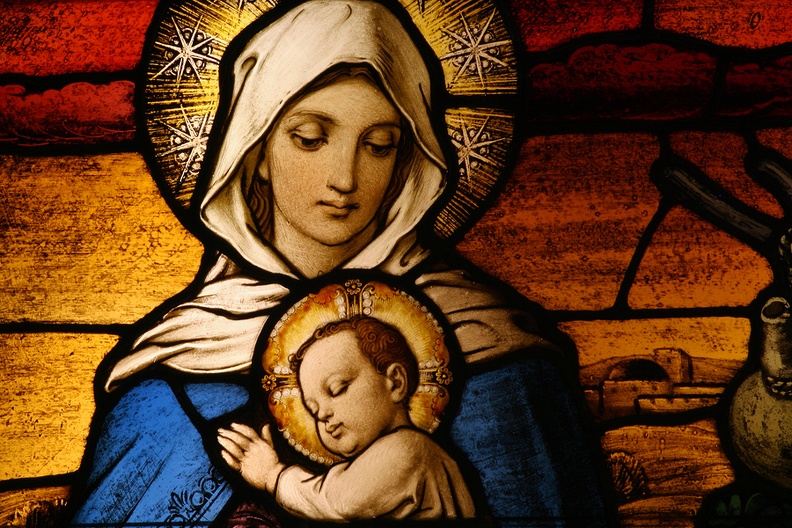
Mary, Mother of God
01-01-2023Weekly ReflectionDiscipleship means Prayer and reflection, Obedience to God and God's will, and Fidelity to a community of faith.
Today’s reading is a continuation from the Gospel proclaimed at the Christmas Mass at midnight. In it the shepherds act upon the message they receive from the angel and go to find Jesus in the manger in Bethlehem. In their visit to the manger, the shepherds find things just as the angel had said. The shepherds’ visit, therefore, is a moment of fulfillment, manifestation, and the beginning of the salvation we receive through Christ.
In the context of today’s Solemnity, this reading also helps us focus on Mary as the Mother of God. The reading tells us at least three things about Mary as a mother. First, Mary is described as a reflective person, keeping the reports of the shepherds in her heart. Second, we are reminded of how obedient Mary was to God when she named the baby Jesus as the angel Gabriel had directed. Third, this reading shows Mary and Joseph faithfully observing their Jewish tradition by having Jesus circumcised.
READ MORE
Christ be our Light, Light our Way
12-25-2022Weekly ReflectionIn this prologue to the Gospel of John, we also hear the main themes that will be developed in his Gospel. These are often presented as dualities: light and dark, truth and falsehood, life and death, and belief and unbelief. We also hear in this prologue a unique aspect of John’s Gospel, the theme of testimony. John the Baptist was sent by God to testify to Jesus, the light. Others in this Gospel will also offer testimony about Jesus. The reader is invited to accept this testimony, which bears witnesses to Jesus, the Son of God. But even more directly, Jesus’ action and words will testify to Jesus’ identity as God’s Incarnate Word.
READ MORE
Love
12-18-2022Weekly ReflectionFinally, on this the Fourth Sunday of Advent, our Gospel Reading permits us to begin our contemplation of the mystery of the Incarnation we celebrate at Christmas: “Now this is how the birth of Jesus Christ came about”
The Gospel of Matthew tells the story of the birth of Jesus from Joseph's perspective. Today's Gospel passage is the second movement in this story. In the preceding verses of the first chapter of Matthew's Gospel, the Evangelist has listed the genealogy of Jesus, tracing his lineage through King David to Abraham. In the chapter to follow, Matthew tells of the visit from the Magi, the Holy Family's flight into Egypt, and Herod's massacre of the infants in Bethlehem. (The other stories which we associate with Christmas, the Annunciation, the Visitation, the angel and the shepherds, are found in the Gospel of Luke).
READ MORE
Joy
12-11-2022Weekly ReflectionThe third Sunday of Advent is traditionally called Gaudete Sunday. Gaudete is the Latin word meaning “rejoice.” This Sunday is so named because “Rejoice” is the first word in the entrance antiphon for today's Mass taken from Philippians 4:4,5: “Rejoice in the Lord always; again I say, rejoice! The Lord is near.” Some people mark this Sunday on their Advent wreath with a pink candle instead of a purple candle. This Sunday is a joyful reminder that our salvation is near.
READ MORE
Repentance
12-04-2022Weekly ReflectionThe work of the Spirit whereby a sinner sorrowfully turns away from their sin and casts themselves upon the mercy of a loving God.
CONVICTION — CONTRITION CONFESSION— CONVERSION
In this week's Gospel Reading and next week's, our Advent preparation for Christmas invites us to consider John the Baptist and his relationship to Jesus. In this week's Gospel, Matthew describes the work and preaching of John the Baptist.
READ MORE